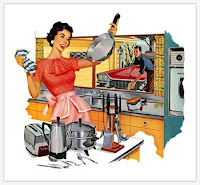Wednesday, 16 December 2009
Demographic trends since 1990
Sociology of childhood
There are alot of different approaches to the sociology of childhood and some focus upon the idea that children are weak and vulnerable and need to be protected (also known as the 'welfare approach or conventional approach and this is related to functionalism) and there is also the idea that children can be manipulative, controling and bad and this is called the control approach and is about the more negative aspects of childhood such as how they manipulate their parents and get what they want. Finally postman is 1983 declared that that childhood has disappeared and that the media has brought children in the adult world at the cost of their innocence. He has been criticised for this idea because childhood is a long way from disappearing and according to Lee, childhood has in fact become a lot more complex and ambiguous because children are both independant and dependant in the choices that they make and in the things that they do.
Wednesday, 18 November 2009
Decision making and power in households

Stepford Wive's

Two films of the same name have been adapted from the novel; the first starred Katharine Ross and was released in 1975, while a remake starring Nicole Kidman appeared in 2004. Edgar J. Scherick produced the 1975 version, all three sequels, and was posthumously credited as producer in the 2004 remake.
The term "Stepford wife", which is often used in popular culture, stemmed from the novel, and is usually a reference to a submissive and docile housewife.
The New and Improved Good Wife's Guide

As long as there is nothing living or breathing in the inch high dust that covers the TV, cabinets or shelves, it can wait. And if your washer, dryer or dishwasher are running when your husband comes home, well it's a sign that you've obviously been busy that day.
Building a fire is fun if you have a fireplace. And if you do, try not to "accidentally" knock your husband into it when he picks a fight even though that might bring you "immense personal satisfaction."
Be happy to see your husband, assuming he's on time and in a good mood. Be even happier if he brought home a paycheck.
Give him a hug when he walks in the door, if he doesn't smell of another woman's perfume, give him a kiss too. If you missed him, tell him. If you actually want to know how his day went, ask him. And if you love him, remind him.
Make a list of all of the things you need or want to tell your husband when he comes home. In the midst of football, ballet, tuba and soccer practice you'll most likely forget. And this way you can hit every topic over dinner. Giving pop quizzes afterwards always helps to drive your points across, although it might make him mad and then he "might" have a fireplace accident.
The good wife's guide

Have dinner ready. Plan ahead, even the night before, to have a delicious meal ready, on time for his return. This is a way of letting him know that you have been thinking about him and are concerned about his needs. Most men are hungry when they come home and the prospect of a good meal (especially his favorite dish) is part of the warm welcome needed.
Prepare yourself. Take 15 minutes to rest so you'll be refreshed when he arrives. Touch up your make-up, put a ribbon in your hair and be fresh-looking. He has just been with a lot of work-weary people.
Be a little gay and a little more interesting for him. His boring day may need a lift and one of your duties is to provide it.
Clear away clutter. Make one last trip through the main part of the house just before your husband arrives.
Gather up schoolbooks, toys, paper, etc and then run a dustcloth over the tables.
Over the cooler months of the year you should prepare and light a fire for him to unwind by. Your husband will feel he has reached a haven of rest and order, and it will give you a lift too. After all, catering for his comfort will give you immense personal satisfaction.
Prepare the children. Take a few minutes to wash the children's hands and faces (if they are small), comb their hair, and if neccesary, change their clothes. They are little treasures and he would like to see them playing the part. Minimise all noise. At the time of his arrival, eliminate all noise of the washer, dryer or vacuum. Try to encourage the children to be quiet.
Be happy to see him.
Make the evening his. Never complain if he comes home late, or goes out to dinner, or other place of entertainment without you. Instead, try to understand his world of strain and pressure and his very real need to be at home and relax.
Domestic labour and gender roles in the family
